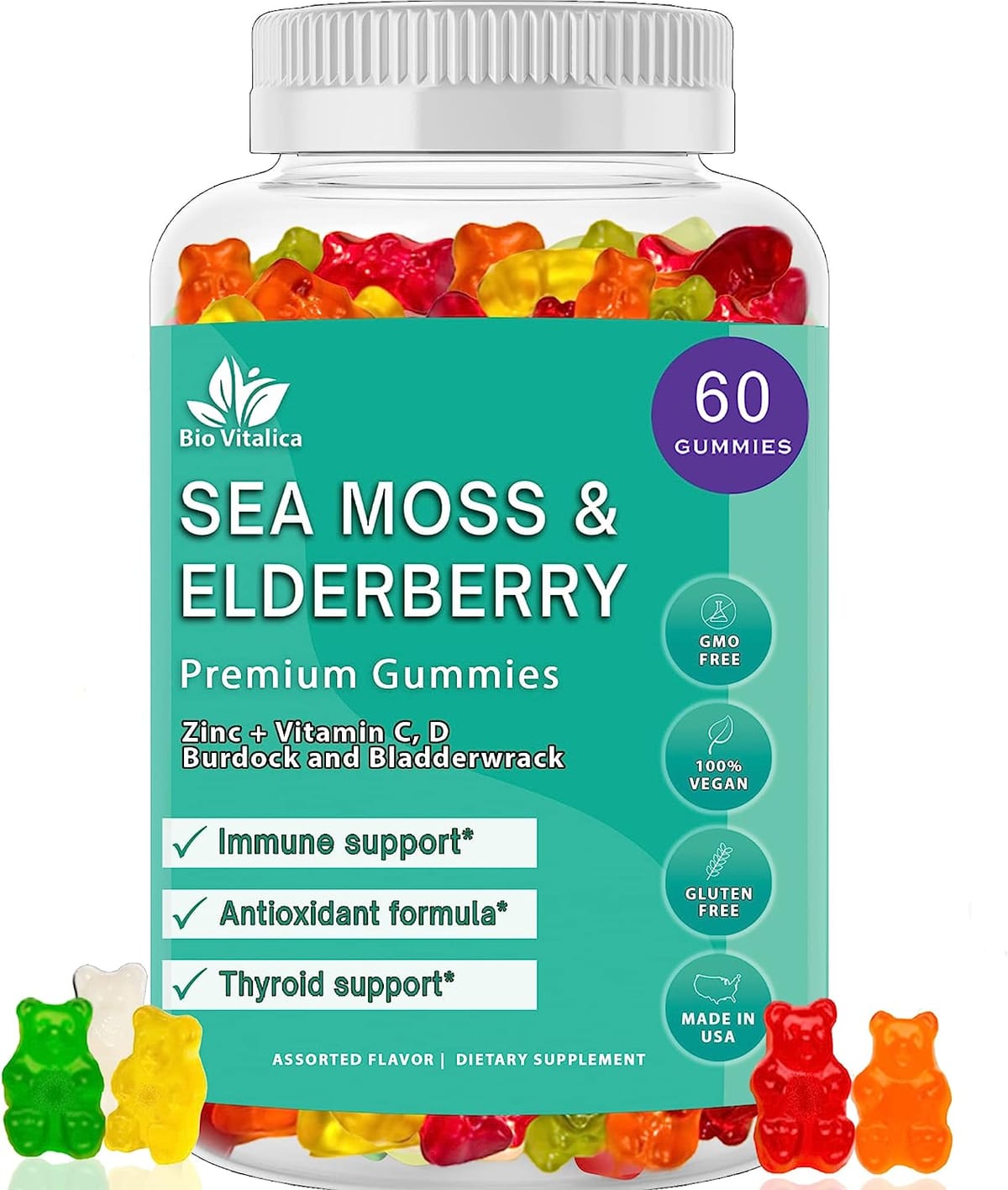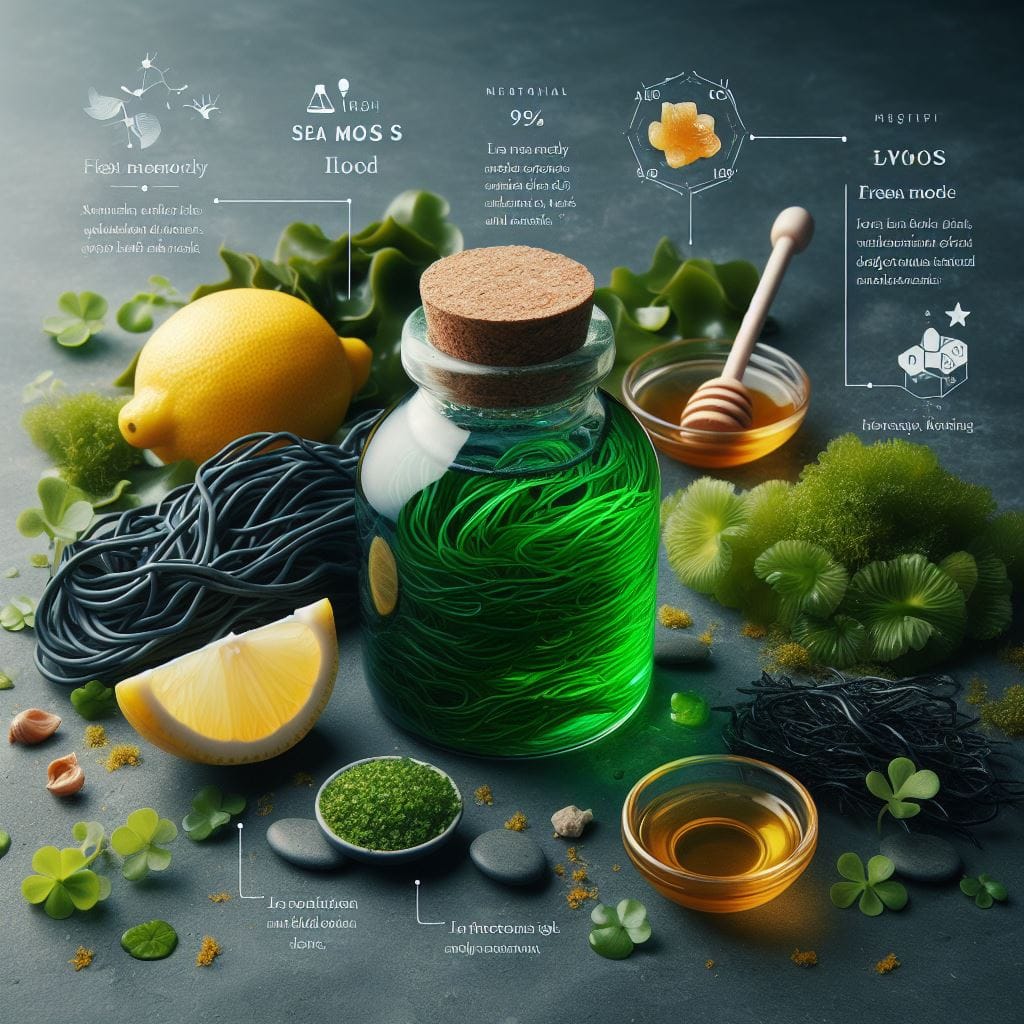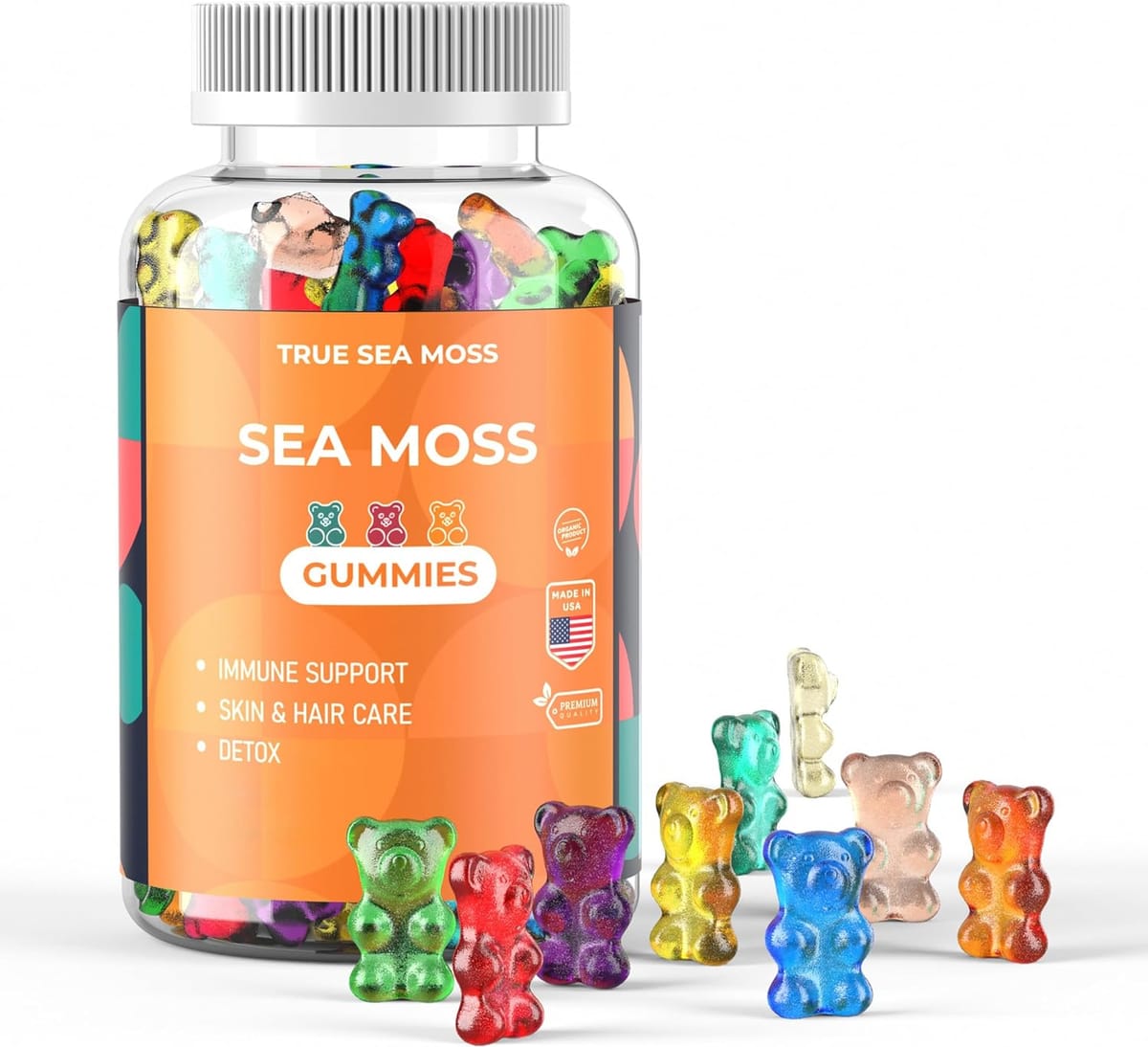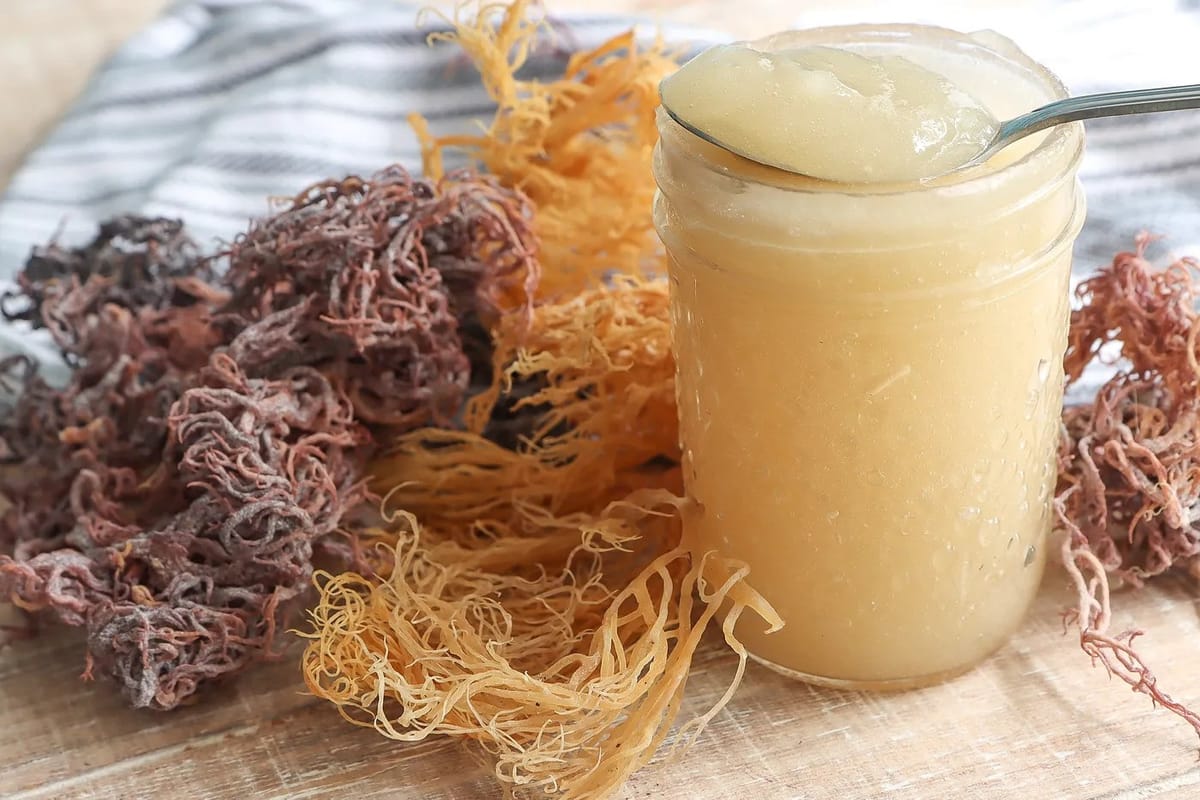Sea moss, a type of red seaweed has recently gained popularity as a superfood, attributed to numerous health benefits. However, with the rise in its consumption, it's crucial to understand the potential sea moss side effects that may accompany its use. This article aims to provide an informative and professional exploration of the side effects associated with sea moss, ensuring consumers are well-informed about both the benefits and risks.
Key Takeaways:
- Sea moss contains high levels of iodine, which can lead to thyroid health issues if consumed in excess.
- Overconsumption of sea moss may result in gut health problems and interact with certain medications, such as blood thinners.
- It is important to consult with a healthcare professional before incorporating sea moss into your diet, especially for individuals with pre-existing health conditions.
Understanding Sea Moss and Its Popularity
Sea moss is a type of red algae that has been touted for its potential health benefits. It is rich in essential vitamins and minerals, making it a popular addition to dietary supplements. The edible seaweed is often consumed in the form of sea moss gel, pills, or added to foods and beverages. Despite its many health benefits, it's important to be aware of the possible side effects that can arise from eating sea moss.
The Iodine Factor in Sea Moss
One of the most significant concerns when taking sea moss is its high iodine content. Iodine is an essential mineral necessary for proper thyroid function, but too much iodine can lead to thyroid problems.
Excessive iodine intake can result in an overactive thyroid or exacerbate pre-existing thyroid conditions. It's crucial to understand how much sea moss is safe to consume to avoid potential issues related to too much iodine.
Potential Thyroid Health Complications
Thyroid health is a major consideration when consuming sea moss. The European Thyroid Journal has published studies indicating that excessive consumption of iodine can disrupt thyroid hormones.
Individuals with thyroid conditions should be particularly cautious and consult a healthcare professional before taking sea moss supplements or adding sea moss to their diet.
Interactions with Medications
Sea moss or Irish moss may interact with certain medications, such as blood thinner medications and thyroid medications. Its blood-thinning properties could potentially enhance the effects of anticoagulant drugs, leading to health problems.
It is essential to discuss with a healthcare professional before introducing sea moss if you are on any medication.
Gastrointestinal Side Effects
While sea moss can support gut health, consuming excessive amounts may lead to stomach pain and other digestive issues. The high fiber content in sea moss is generally beneficial, but it can cause discomfort for some individuals, especially when introduced rapidly into the diet. Nutritional Profile and Benefits of Sea Moss Sea moss, a type of red algae, has been gaining traction as a superfood due to its rich nutritional profile. It is packed with essential minerals and vitamins crucial for maintaining a healthy body. Sea moss pills and raw sea moss are commonly marketed for their high iodine content, which is vital for thyroid hormone production.
However, they also contain other nutrients such as potassium, calcium, and magnesium. These elements play a significant role in supporting bone health, regulating blood pressure, and ensuring proper muscle function. The benefits of sea moss extend beyond just thyroid support, making it a popular addition to many health enthusiasts' diets.
While the benefits of sea moss are plentiful, it is important to consider the source and preparation of the product. Dried sea moss, for instance, can be rehydrated and added to foods or smoothies, providing a convenient way to incorporate this nutrient powerhouse into one's diet. Sea moss products, including gels and powders, offer versatility in use, but it's essential to choose products from reputable suppliers to avoid contaminants. The nutritional benefits of sea moss, coupled with its ease of use, make it an attractive option for those looking to enhance their nutrient intake naturally.
Precautions for Individuals with Pre-existing Conditions Individuals with pre-existing thyroid conditions should approach sea moss supplementation with caution. While iodine is necessary for thyroid health, excessive intake can lead to iodine poisoning, especially in those with a predisposition to thyroid imbalances. Iodine supplementation through sea moss products should be carefully monitored to prevent serious adverse effects such as hyperthyroidism or hypothyroidism. It's also advisable for these individuals to consult with a healthcare specialist before adding sea moss to their regimen to ensure it aligns with their specific health needs.
Moreover, sea moss's blood thinning properties may pose a risk for individuals on anticoagulant medications. The interaction between sea moss and such medications could potentially enhance the blood-thinning effect, increasing the risk of bleeding. This is particularly important for those with conditions that require blood thinners or for individuals scheduled for surgery. As with any supplement, it's generally safe to consult a healthcare provider to discuss potential interactions and contraindications. This ensures that the consumption of sea moss, whether in the form of pills, gels, or raw, is done safely and effectively.
Sea Moss and Nutrient Absorption
Sea moss, often touted for its rich mineral content, may also play a role in nutrient absorption. This marine superfood contains a substance known as carrageenan, a type of soluble fiber that can aid in the digestive process.
However, the impact of sea moss on nutrient uptake is a double-edged sword. While it can enhance the absorption of certain minerals, it may also interfere with the bioavailability of others. Individuals with pre-existing conditions related to nutrient absorption should approach sea moss with caution.
The concern is not unfounded, as sea moss common in many health circles, might alter the intestinal environment. For those with sensitive digestive systems or conditions like IBS, the introduction of sea moss could potentially exacerbate symptoms.
It's essential to consider the balance of one's diet, ensuring that the inclusion of sea moss does not disrupt the absorption of critical nutrients, such as fat-soluble vitamins and essential minerals. Consulting with a healthcare professional can help tailor a diet that accounts for these potential changes.
Sea Moss and Pre-existing Thyroid Conditions
Sea moss, a type of red algae, has gained popularity for its potential health benefits, but it's crucial to consider its effects on individuals with pre-existing thyroid conditions. The high iodine content in sea moss can disrupt the delicate balance of thyroid hormones in those already managing thyroid issues.
For instance, individuals with Hashimoto's thyroiditis, an autoimmune condition, may experience a worsening of symptoms if iodine intake is not carefully monitored. The body's ability to regulate thyroid function relies on a precise iodine balance, and the introduction of sea moss could tip the scales unfavorably.
Moreover, for those with hyperthyroidism, where the thyroid gland is overactive, the additional iodine from sea moss could exacerbate the condition, leading to symptoms such as rapid heartbeat, anxiety, and unintended weight loss.
Individuals with pre-existing thyroid conditions must consult with healthcare professionals before incorporating sea moss into their diet. This ensures that their iodine levels are kept within a safe range and the sudden influx of this mineral does not aggravate their thyroid condition.
Sea Moss as a Skincare Ingredient
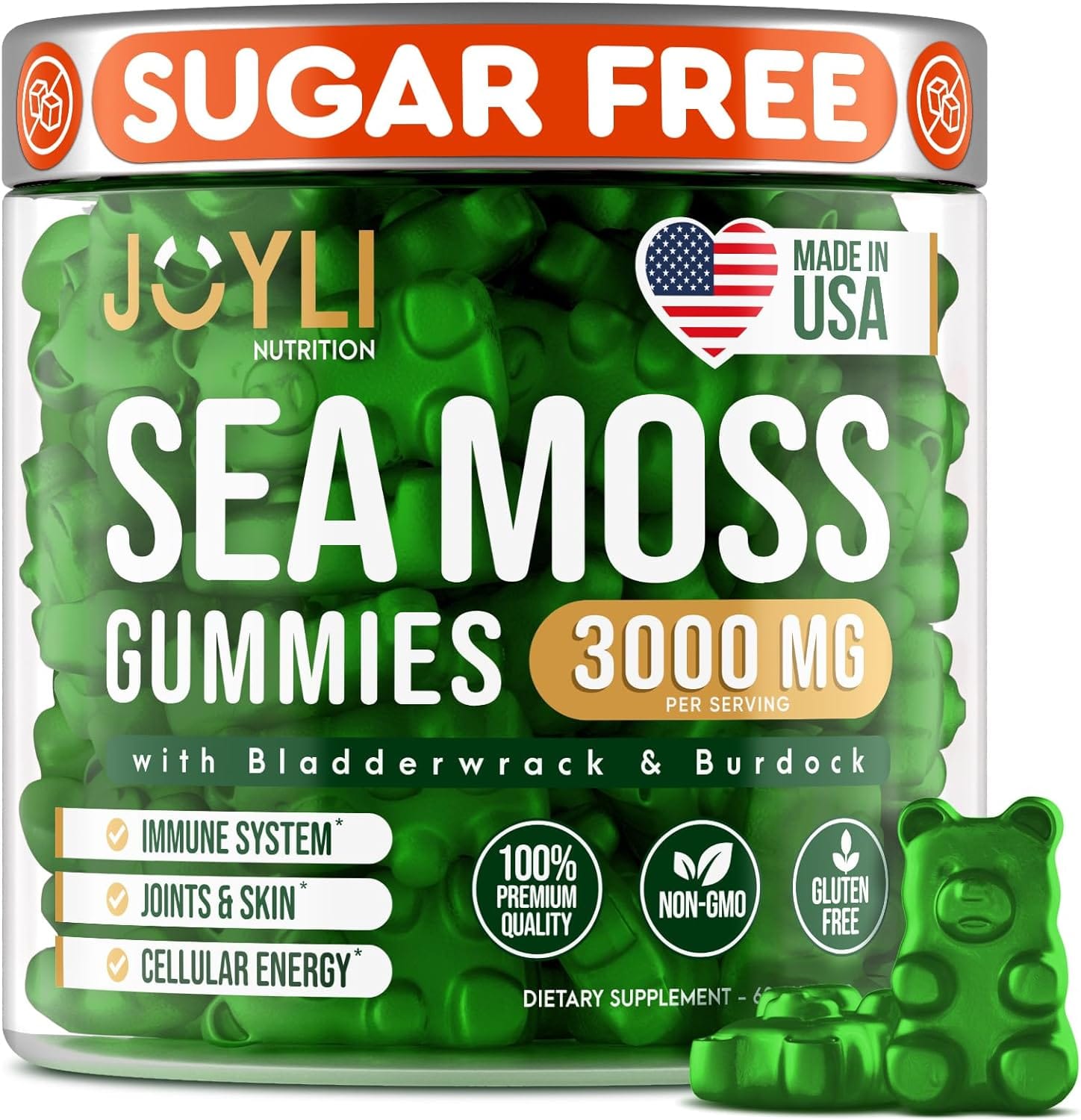
In the realm of skincare, sea moss has emerged as a natural alternative to conventional products, often compared to aloe vera for its soothing properties. Rich in vitamins and minerals, sea moss is believed to nourish the skin, potentially aiding in conditions like eczema and psoriasis. Its anti-inflammatory and moisturizing effects make it a desirable ingredient in topical formulations, promising to enhance skin health and resilience.
However, the topical application of sea moss is not without its considerations. For individuals with iodine sensitivity or iodine deficiency, the use of sea moss-infused skincare products could lead to skin irritation or other adverse reactions.
It's crucial to patch-test any new product and be aware of the iodine content, especially if one is prone to skin allergies or has pre-existing thyroid conditions. As with dietary supplements, the use of sea moss in skincare should be discussed with a dermatologist or healthcare provider to ensure its suitability for your skin type and health profile.
Allergic Reactions and Immune System Response
Severe allergic reactions, although rare, can occur when consuming sea moss. Individuals with allergies to seafood or algae should be cautious and may need to avoid sea moss altogether. Additionally, while sea moss may support the immune system, it can also trigger an immune response in sensitive individuals.
The Risk of Heavy Metals and Toxic Metals
Sea moss, like other edible seaweeds, can absorb heavy metals and toxic metals from the water it grows in. Consuming sea moss from polluted waters can lead to health risks associated with these contaminants. It's important to purchase sea moss from reputable sources to minimize this risk.
How Much Sea Moss Is Too Much?
Determining the right amount of sea moss to consume is crucial to avoid sea moss severe side effects. There is no one-size-fits-all answer, as individual tolerance levels vary. It's advisable to start with small amounts when incorporating sea moss into your diet and to consult a healthcare professional for personalized guidance.
Sea Moss and Heart Health
Sea moss contains nutrients that may benefit heart health, but excessive iodine intake can have the opposite effect. High iodine levels can lead to heart palpitations and other cardiovascular issues. It's important to balance the potential benefits with the risk of consuming too much.
Sea Moss During Pregnancy and Breastfeeding
Pregnant and breastfeeding women should exercise caution when taking sea moss. The iodine in sea moss can affect both the mother and the child, and there is limited scientific evidence on the safety of sea moss consumption during these sensitive periods. Consulting a healthcare professional is strongly recommended.
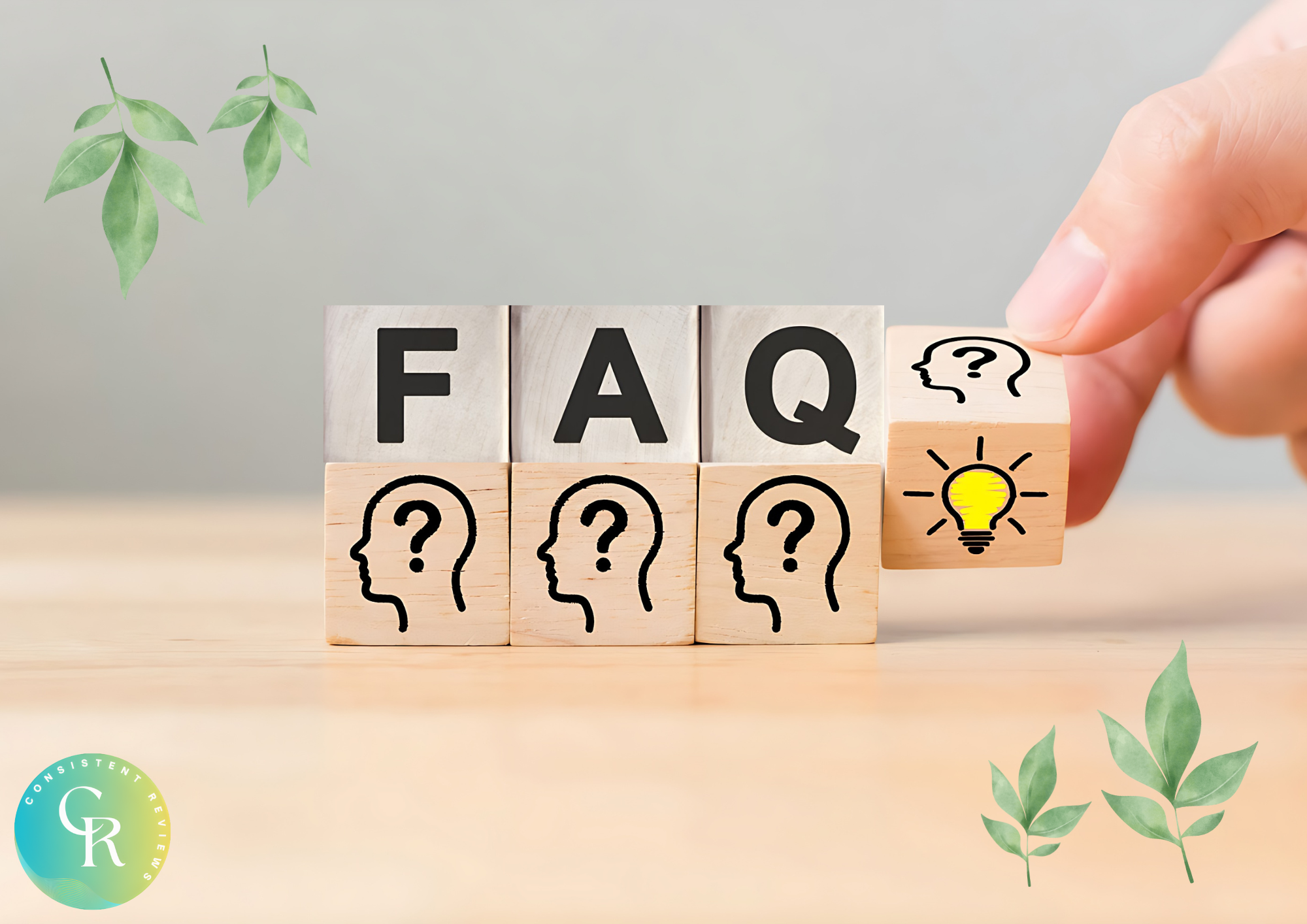
Can sea moss cause thyroid problems?
Due to its high iodine content, sea moss can cause thyroid problems if consumed in large quantities. It can lead to an overactive or underactive thyroid, especially in individuals with pre-existing thyroid conditions.
Is it safe to take sea moss with blood thinner medications?
Sea moss has blood-thinning properties and may interact with blood-thinner medications. It is crucial to consult with a healthcare professional before combining sea moss with any medication.
How do I know if I'm consuming too much sea moss?
Excessive consumption of sea moss can result in thyroid dysfunction, stomach pain, and potential heart issues. It is advisable to begin with small portions and seek guidance from a healthcare professional to ascertain the suitable dosage for your requirements.
Does sea moss affect hormones?
There is limited research on the effects of sea moss on hormones. However, some studies suggest that sea moss may help regulate thyroid hormones and potentially have a positive impact on estrogen levels in women.
Is sea moss good for your skin?
Yes, sea moss is rich in vitamins and minerals that can enhance your skin's health. It contains antioxidants that help fight against free radicals and may promote collagen production for a more youthful appearance. Additionally, sea moss has anti-inflammatory properties that could soothe conditions like eczema and psoriasis.
How many sea moss gummies to take?
The recommended dosage for sea moss gummies may vary depending on the brand and potency. It is best to consult with your healthcare provider or follow the instructions on the product label for proper dosing. Typically, it is recommended to take 1-2 sea moss gummies per day for optimal benefits.
Why is sea moss not FDA-approved?
Sea moss is not FDA-approved because it is considered a dietary supplement, rather than a medication. The FDA only regulates and approves medications, not supplements. This means that sea moss has not undergone the same rigorous testing and approval process as medications, and its safety and effectiveness have not been evaluated by the FDA.
However, many people still choose to consume sea moss as a natural source of vitamins and minerals, and it has been used for centuries in traditional medicine. It is always important to consult with a healthcare professional before adding any new supplement to your diet.
What are the best sea moss capsules to buy?
If you're interested in trying sea moss as a supplement, you may be wondering which brand or type of sea moss capsules to buy. With so many options on the market, it can be overwhelming to choose the best one for you.

Sea moss, while offering numerous health benefits, also comes with potential side effects that should not be overlooked. The high iodine content can lead to thyroid issues, interactions with medications, digestive discomfort, allergic reactions, and the risk of heavy metal contamination. It is essential to consume sea moss in moderation, source it from reputable suppliers, and consult with a healthcare professional to ensure it is safe for individual use.
